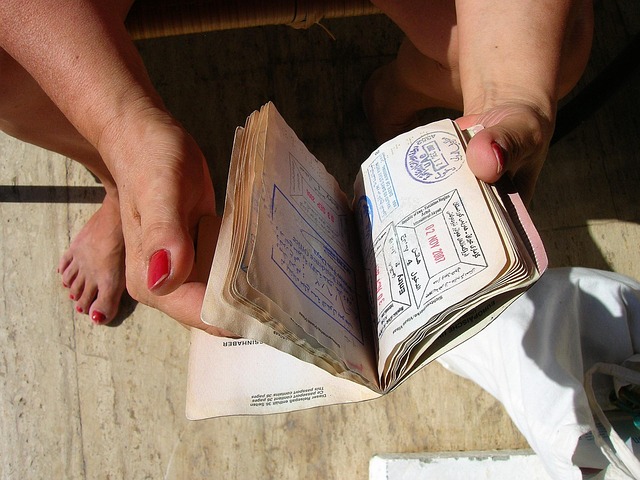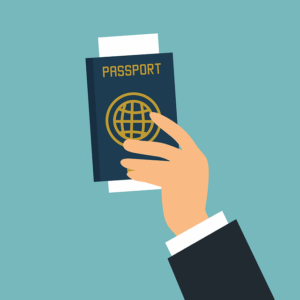TL;DR:
Translating UK cookbooks and culinary guides for international audiences requires a blend of linguistic expertise and culinary knowledge. Professional translators must navigate regional variations, ingredient availability, and cooking methods to ensure accuracy and authenticity. Specialized services use tools like digital kitchen scales, standardized units, and cultural databases to adapt recipes globally. Native speakers and culinary experts play vital roles in preserving flavor profiles and cultural context. Today's technology, including machine learning, facilitates accessible online platforms for global cooks. Successful case studies highlight the demand for high-quality translations tailored to specific markets. Legal considerations regarding copyright are crucial, while digital platforms enable targeted distribution and advertising for international audiences. Ultimately, precise recipe translations foster global culinary exchange and cultural fusion.
In today’s global culinary landscape, translating recipes for international cooks is more than just adapting ingredients—it’s about preserving cultural traditions while introducing diverse flavors. This article explores the intricacies of recipe translation, focusing on UK cookbooks and culinary guides. We delve into cultural differences, language nuances, and the role of technology in ensuring accurate translations that resonate with global audiences. From navigating legal considerations to marketing translated content, discover how these efforts shape international cuisine.
- Understanding Cultural Differences in Cooking: A Foundation for Accurate Translation
- The Challenges of Translating UK Cookbooks: Language Nuances and Ingredient Variations
- How Professional Culinary Guides Navigate Recipe Translations
- Essential Tools and Resources for Accurate Recipe Translation
- Employing Native Speakers: Ensuring Flavor and Tradition in Cooking Translations
- Technology's Role in Modern Recipe Translation Services
- Case Studies: Successful UK Cookbook Translations Around the World
- Legal and Copyright Considerations for International Culinary Guides
- Marketing Your Translated Cookbooks and Culinary Resources Globally
- The Impact of Accurate Recipe Translations on International Cuisine
Understanding Cultural Differences in Cooking: A Foundation for Accurate Translation

When translating recipes for international cooks, understanding cultural differences in cooking methods and ingredients is fundamental to accuracy. Different countries have unique culinary traditions and preferences shaped by availability of local produce, historical influences, and regional practices. A simple ingredient like “butter” might be replaced with ghee, coconut oil, or margarine in some cuisines, while cooking techniques vary widely from baking in an oven to stir-frying over a high heat.
UK cookbooks and culinary guides offer rich insights into these nuances, making them valuable resources for translation services catering to global cooks. Professional translators specializing in food literature must possess not just linguistic skills but also a deep knowledge of various cuisines. They interpret not just words but the essence of a dish, ensuring that the translated recipe retains its authenticity and appeal to the intended audience.
The Challenges of Translating UK Cookbooks: Language Nuances and Ingredient Variations

Translating UK cookbooks presents unique challenges for several reasons. Firstly, language nuances play a significant role; British English has many regional variations and colloquialisms that can be hard to interpret literally. For instance, terms like “a pinch of salt” or “baking until golden brown” might carry different meanings across regions. Culinary guides often rely on these idiomatic expressions, which can be tricky for non-native speakers to render accurately in their own languages.
Ingredient variations are another hurdle. UK recipes may include specific ingredients that are commonly used locally but less familiar internationally. Even seemingly simple items like spices or dairy products can differ across borders. Translators must research and adapt these elements, ensuring the recipes remain authentic yet practical for a global audience. Effective translation services for UK cookbooks thus demand a deep understanding of both language and local culinary practices.
How Professional Culinary Guides Navigate Recipe Translations

Professional culinary guides, especially those in the UK, understand the nuances of translating recipes for an international audience. They know that it’s not just about word-for-word translation; it’s about capturing the essence and technique behind each dish. Culinary experts often employ specialized translation services that go beyond language conversion. These services ensure accurate interpretations by considering regional variations, ingredient availability, and cultural cooking methods.
For instance, when translating UK cookbooks for global markets, guides must be mindful of metric systems versus imperial units, and vice versa. They also adapt ingredients based on local alternatives and explain preparation techniques clearly to cater to diverse culinary backgrounds. This meticulous approach guarantees that cooks worldwide can replicate the original dish’s flavor and texture with precision.
Essential Tools and Resources for Accurate Recipe Translation

When translating recipes for international cooks, having the right tools and resources is essential for accuracy. Digital kitchen scales and measuring cups are invaluable assets, ensuring precise ingredient quantities. These tools standardise measurements across different countries’ systems, preventing common pitfalls like using US cups in UK cookbooks or vice versa.
Additionally, UK cookbook and culinary guide translation services play a pivotal role. Professional translators with culinary backgrounds can navigate the nuances of ingredients, terminology, and cooking techniques specific to various regions. They employ reliable resources like food databases and cultural reference materials to convey recipes accurately, ensuring that international cooks create dishes true to their original flavour and intent.
Employing Native Speakers: Ensuring Flavor and Tradition in Cooking Translations

When translating recipes for international cooks, employing native speakers is paramount to ensuring accuracy and authenticity. UK cookbook and culinary guide translation services often rely on professionals who are not just fluent in multiple languages but also have a deep understanding of culinary traditions and local ingredients. These experts can capture the essence of a dish not just through words but by conveying the cultural context that shapes cooking methods and ingredient choices.
This approach is vital for maintaining flavor profiles and preserving heritage recipes. Native speakers can differentiate between subtle nuances in taste, texture, and presentation that might be lost in translation. They understand the idiomatic expressions and cultural references embedded in traditional cuisine, ensuring that the translated recipe not only communicates ingredients but also tells a story that resonates with the target audience’s culinary heritage.
Technology's Role in Modern Recipe Translation Services

In today’s globalized world, technology plays a pivotal role in bridging cultural gaps, and this is no different when it comes to culinary arts. Advanced translation services have revolutionized how recipes are shared, making international cooking more accessible than ever before. Online platforms and apps designed for UK cookbooks and culinary guides translation services utilize machine learning algorithms and natural language processing to interpret and translate recipes accurately.
These digital tools not only convert text from one language to another but also adapt to the nuances of different cuisines. They consider ingredients, measurements, and cooking techniques unique to various regions, ensuring that translated recipes remain authentic and practical for cooks worldwide. With a simple search or download, home chefs and professional cooks alike can now access a vast library of international recipes, fostering cultural exchange through the universal language of food.
Case Studies: Successful UK Cookbook Translations Around the World

When it comes to sharing culinary delights, effective translation services play a vital role in bridging cultural gaps. UK cookbooks and culinary guides have gained global recognition for their unique blend of tradition and innovation. Case studies highlight successful translations that have captivated international audiences. For instance, renowned UK chef Jamie Oliver’s cookbook series has been translated into multiple languages, allowing readers worldwide to embrace his simple yet flavorful recipes. This success story underscores the importance of professional translation services in accurately conveying not just ingredients but also cooking techniques and cultural nuances.
Another example is the comprehensive guide “The Complete UK Baking Book,” which was meticulously translated for a French audience. The translation went beyond literal word-for-word substitutions, ensuring that the essence of British baking traditions was preserved. This approach resulted in a bestseller in France, showcasing how attentive translation can create a loyal following for UK culinary content abroad. Such successes demonstrate the demand for high-quality UK cookbooks and culinary guides translations services tailored to international markets.
Legal and Copyright Considerations for International Culinary Guides

When translating recipes for international cooks, especially those aiming to publish culinary guides or cookbooks, it’s crucial to navigate legal and copyright considerations. In the UK, for instance, copyright laws protect original literary works, including recipes and cookbook content. Translators must ensure they have the necessary permissions from the original author or publisher before reproducing any material. Using professional translation services specialized in UK cookbooks and culinary guides can help navigate these complexities. These services understand local copyright laws and can secure the appropriate licenses to ensure legal compliance while preserving the essence of the original work.
Additionally, cultural nuances must be taken into account. What’s considered a standard ingredient or cooking technique in one country might differ significantly in another. Translators should consult with native speakers or experts familiar with culinary practices across target markets. This ensures that translated recipes are not only legally sound but also practical and appealing to international cooks, fostering genuine connections through shared culinary experiences.
Marketing Your Translated Cookbooks and Culinary Resources Globally

In today’s global culinary landscape, offering translated cookbooks and culinary guides is a strategic move to tap into a vast international audience of eager home cooks and professional chefs. Marketing these resources effectively involves understanding the unique preferences and cultural nuances of each target market. For UK-based cookbook authors, leveraging specialized translation services that cater to specific linguistic regions is key. This ensures not just accurate recipes but also culturally sensitive language that resonates with readers worldwide.
Digital platforms play a significant role in reaching global customers seamlessly. Utilizing social media, food blogs, and dedicated culinary forums allows for targeted advertising and content distribution. Highlighting the convenience of easily accessible UK cookbooks and guides tailored to different languages opens doors to a diverse customer base. From vibrant cooking communities in Asia to enthusiastic home cooks in North America, there’s a growing appetite for authentic, translated culinary resources that bring the flavors and techniques of the UK to their kitchens.
The Impact of Accurate Recipe Translations on International Cuisine

Accurate recipe translations play a pivotal role in fostering global culinary exchange, particularly for international cooks navigating new cuisines. When recipes are accurately translated, they open doors to authentic culinary experiences, allowing home cooks and chefs alike to explore diverse flavors and techniques from around the world. This is especially significant for UK cookbooks and culinary guides, which often represent a rich heritage of traditional dishes and modern innovations.
By utilizing professional translation services specialized in culinary content, these recipes can be adapted not just linguistically but also culturally, ensuring that ingredients, measurements, and cooking methods are tailored to different global regions. This precision empowers international cooks to recreate favorite dishes from their homelands or adapt local favorites, thereby enriching the global food scene with diverse interpretations and cultural fusion.
Accurate translation of UK cookbooks and culinary guides is no longer a mere option, but a necessity for global cuisine. By understanding cultural differences, leveraging technology, and employing native speakers, professional translators can preserve the essence of traditional recipes while making them accessible to international cooks. This not only enhances culinary diversity but also fosters cultural exchange through the universal language of food. As we’ve seen in successful case studies, investing in quality translation services for UK cookbooks and culinary guides can significantly impact global dining, opening doors to new flavors, traditions, and experiences.
